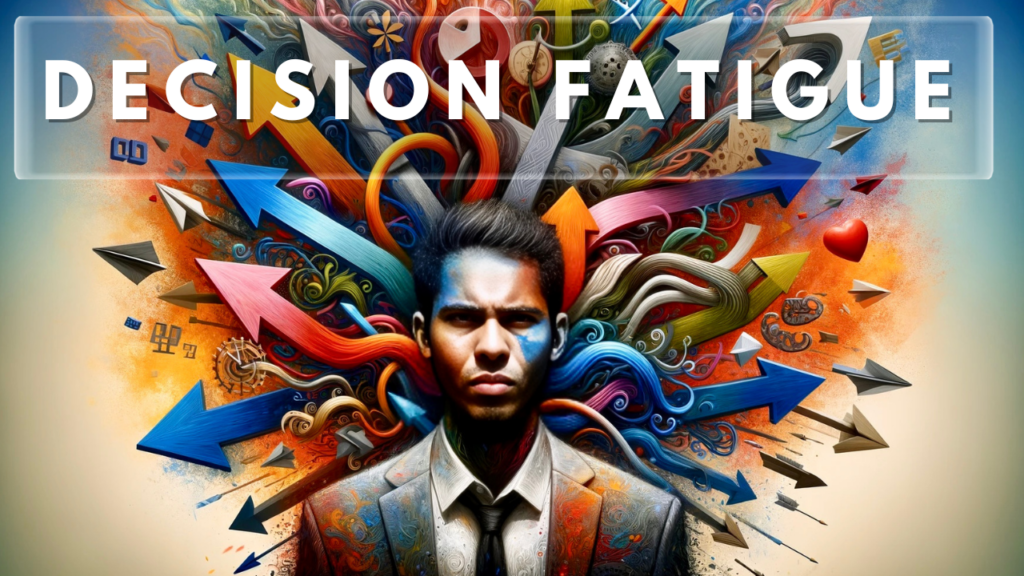Mastering Decision-Making: Overcoming the Burden of Too Many Choices
Navigating the Paradox of Choice
In today’s fast-paced world, we are constantly bombarded with an overwhelming number of choices. Whether it’s deciding on a career path, selecting a new project to pursue, or even choosing what to watch on Netflix, the sheer abundance of options can quickly lead to decision fatigue.
This mental burden can weigh us down, causing rumination, indecision, and a nagging sense of regret. However, with the right strategies and mindset, we can learn to navigate this paradox of choice and make decisions that align with our values and goals.
The Five Keys to Better Decision-Making
To overcome decision fatigue and improve the quality of our choices, we can focus on five key principles:
1. Clarity
The foundation of effective decision-making lies in clarity. Before we can make a well-informed choice, we need to be clear about our criteria, resources, and the desired outcome. This means taking the time to deeply understand our values, priorities, and the context in which the decision is being made. By establishing this clarity, we can filter out the noise and focus on what truly matters.
2. Simplicity
In a world of endless possibilities, it’s crucial to simplify the decision-making process. Rather than getting bogged down in the details, we can identify the most essential factors and streamline our choices. This might involve creating a menu for the week, curating a minimalist wardrobe, or establishing standardized processes for recurring business decisions. By reducing the number of options, we can free up mental space and avoid the paralysis that often accompanies an abundance of choices.
3. Decision-Making Systems
Establishing robust decision-making systems can be a game-changer. Rather than relying on emotions or rushed impulses, we can develop structured processes that guide us through complex choices. These systems might include recruitment protocols, financial decision-making frameworks, or strategic planning templates. By removing the emotional element and focusing on facts and experience, we can increase the likelihood of making decisions that serve us well in the long run.
4. Creating a Universal Compass
At the heart of effective decision-making lies a personal compass that aligns with our values and priorities. This compass should be rooted in three key elements: the energy and enthusiasm we feel towards a choice, the return on investment (in terms of time, money, and resources), and the potential for learning and growth. By consistently referring to this compass, we can ensure that our decisions are not only well-informed but also deeply meaningful and fulfilling.
5. Embracing the Uncertainty
It’s important to acknowledge that decision-making inherently involves a degree of uncertainty. We can never fully predict the future or control every outcome, and that’s okay. Instead of striving for perfection, we can focus on making the best decision possible with the information and resources we have at the time. By embracing this uncertainty and viewing each decision as an opportunity to learn and grow, we can cultivate a more resilient and adaptable mindset.
Putting it into Practice
Implementing these five keys to better decision-making requires a shift in mindset and a willingness to experiment. Start by taking a step back and reflecting on the decisions you’ve made in the past. What worked well, and what could you have done differently? Use this self-awareness to establish your own personal decision-making framework, incorporating the principles of clarity, simplicity, systems, a universal compass, and an embrace of uncertainty.
Remember, the journey of decision-making is an ongoing process, and each choice we make contributes to our growth and experience. By approaching this challenge with a growth mindset and a commitment to continuous improvement, we can navigate the complexities of modern life with greater confidence, clarity, and a renewed sense of purpose.
“I don’t believe in good decisions, I make a decision and make it right.”
– Muhammad Ali
Embracing this philosophy can be a powerful antidote to the paralysis of decision fatigue. By taking ownership of our choices and focusing on making them “right” through our actions and adaptability, we can transform the burden of decision-making into a source of personal growth and empowerment.
So, the next time you find yourself overwhelmed by the weight of countless choices, remember the five keys to better decision-making. Cultivate clarity, simplify your options, establish robust systems, create a personal compass, and embrace the uncertainty. With these strategies in your toolkit, you’ll be well on your way to navigating the paradox of choice and making decisions that truly align with your values and aspirations.
❤️ Loved this ? 💌Share and subscribe to the newsletter…

